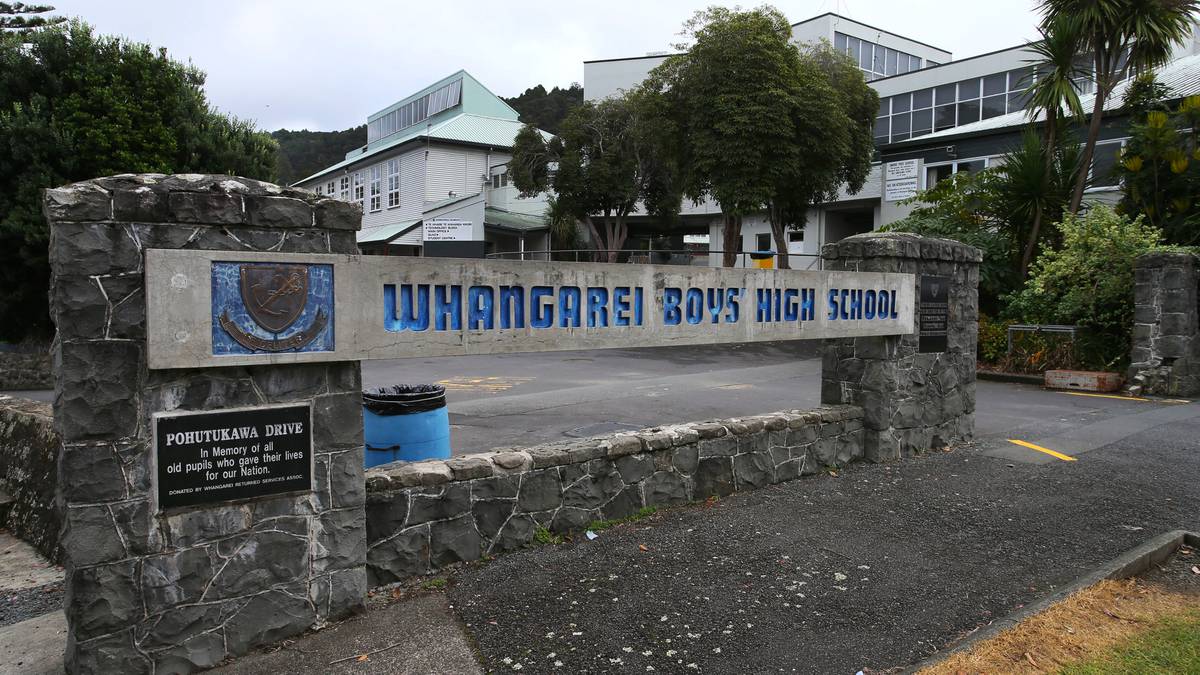Whangārei Boys’ High School has had to close its doors to two lots of its year groups of students after Covid related staff shortages. Photo / Tania Whyte
Hundreds of Whangārei students will have an unexpected day off school this week after Covid and illness ripped through the teaching sector.
Classes for two entire year groups at a Whangārei school have been cancelled due to Covid-related staff shortages.
Whangārei Boys’ High School barred Year 9 students from attending school on Monday, August 22 and then Year 10 students on Tuesday, August 23.
“We have had an unprecedented number of staff away with illness and Covid-related absence,” the school announced in a newsletter.
The school said the relief teacher pool has also been hit by the same issues.
“This has meant many staff have been having to double up classes and cover classes during non-contact periods. “
“Further, with the lack of staff ‘on the ground’ the safety of the boys becomes compromised in terms of the lack of staff being able to conduct duty on the grounds.”
Whangārei Boys’ High School had not responded to questions from the Northern Advocate on the situation by edition time.
Under the red light setting, masks were compulsory in schools for Years 4 and up. But since the move to orange in April each school board has set its own mask policy, a change criticised by public health experts.
“What we need to be doing is requiring mask use indoors in workplaces and schools, we need to be using C02 monitors to tell us how effective indoor ventilation is,” said Northland emergency doctor Gary Payinda.
/cloudfront-ap-southeast-2.images.arcpublishing.com/nzme/WXJBTP56MZ7QJBZH6J6H35QHV4.jpg)
Payinda described the impact of Covid on schools and workplaces as a “rolling blackout” that will continue as people get reinfected.
“We’ve got schools unable to teach students and losing teachers to sickness, and it’s largely preventable.”
“I consider masking to be one of the most trivial things we could do to protect ourselves and those around us and yet we’re not doing it in workplaces, and we’re not doing it in schools.”
Payinda credits the N95 mask that he wears to work as one of the easy preventative measures that have kept him safe in the midst of the pandemic.
“I’ve seen literally hundreds and hundreds of Covid patients up close and personal… and as far as I know, I’ve never had a Covid infection.
“Every day I am admitting patients with serious Covid infections, some of whom are going to do badly and then a few of whom are not going to survive, and the fact that we have completely normalised and accepted infection like that is really shocking.”
Just last week a campaign to tackle Northland’s high truancy rates was launched by Northland schools and the Tai Tokerau Ministry of Education office.
Tai Tokerau Principals’ Association president Pat Newman said there were multiple factors driving truancy in Northland, including but not limited to “Covid hangover and the lack of trust in schools”.
“For some, it is a fear of Covid-19, some don’t believe kids should be made to wear masks, and then there are those who think schools will vaccinate the kids without parental consent,” Newman said in May this year.
But it stopped short of making masks compulsory, instead leaving it to each school board to make the call themselves.
Schools and kura are able to get free face masks for students and staff.




